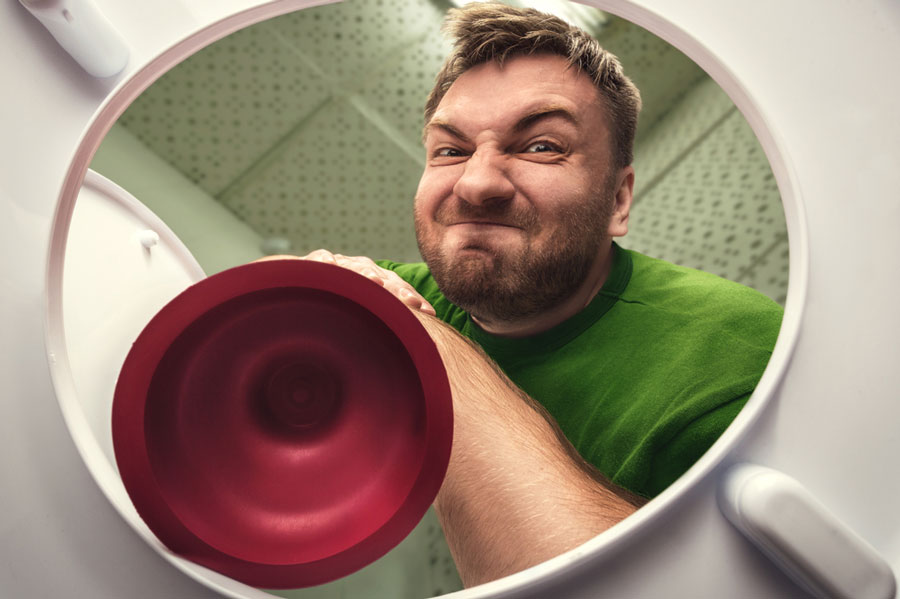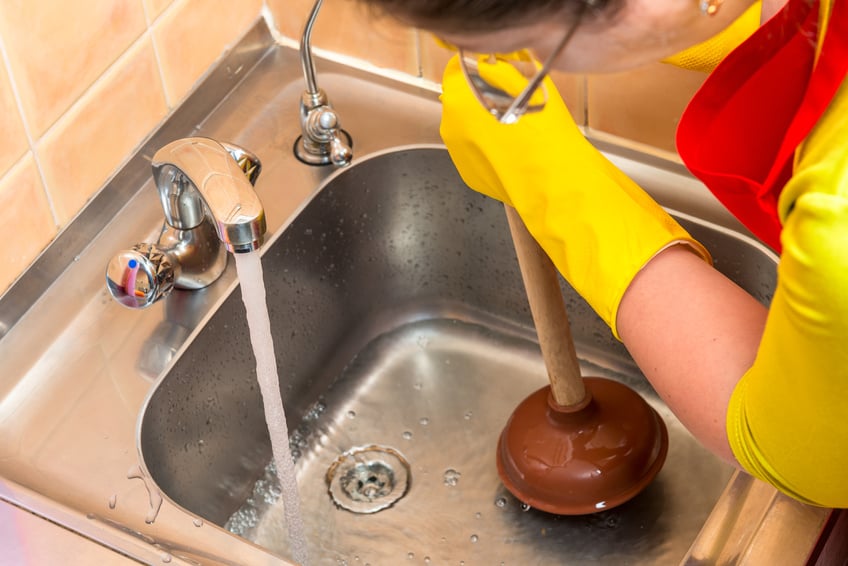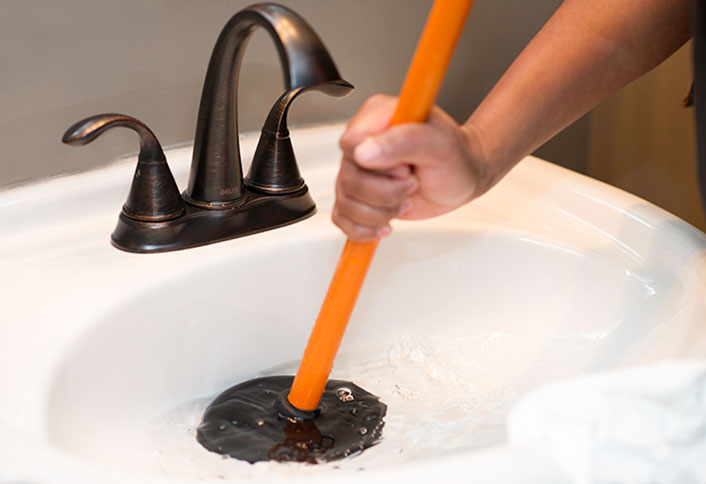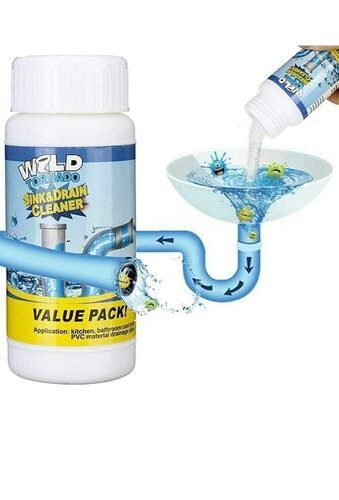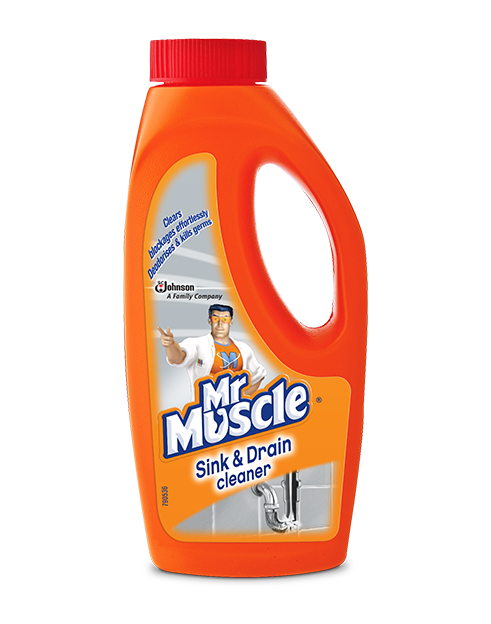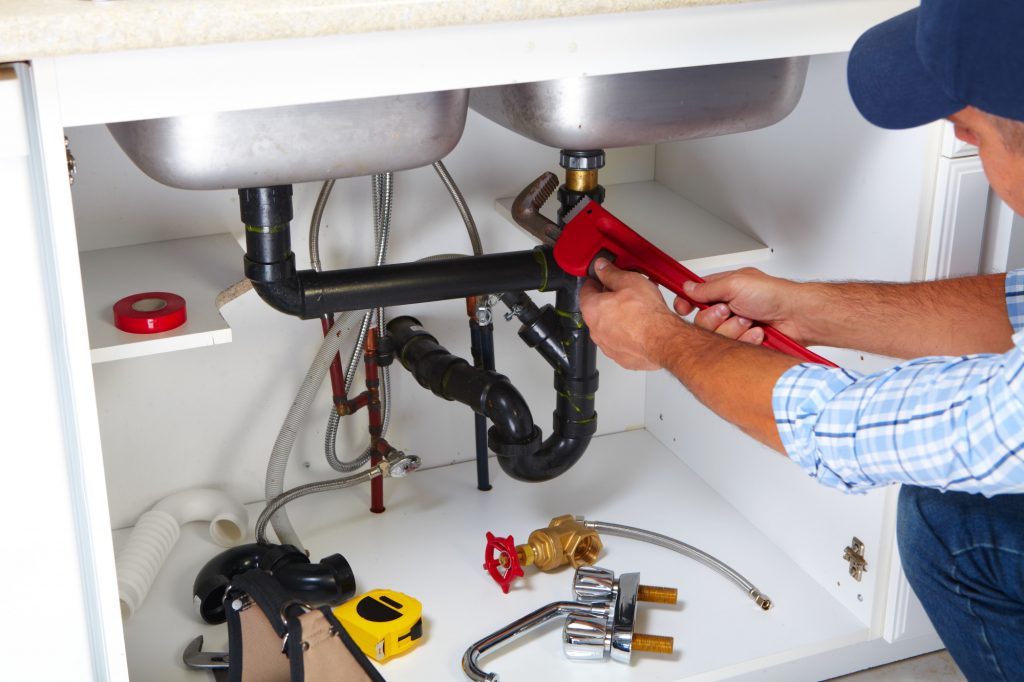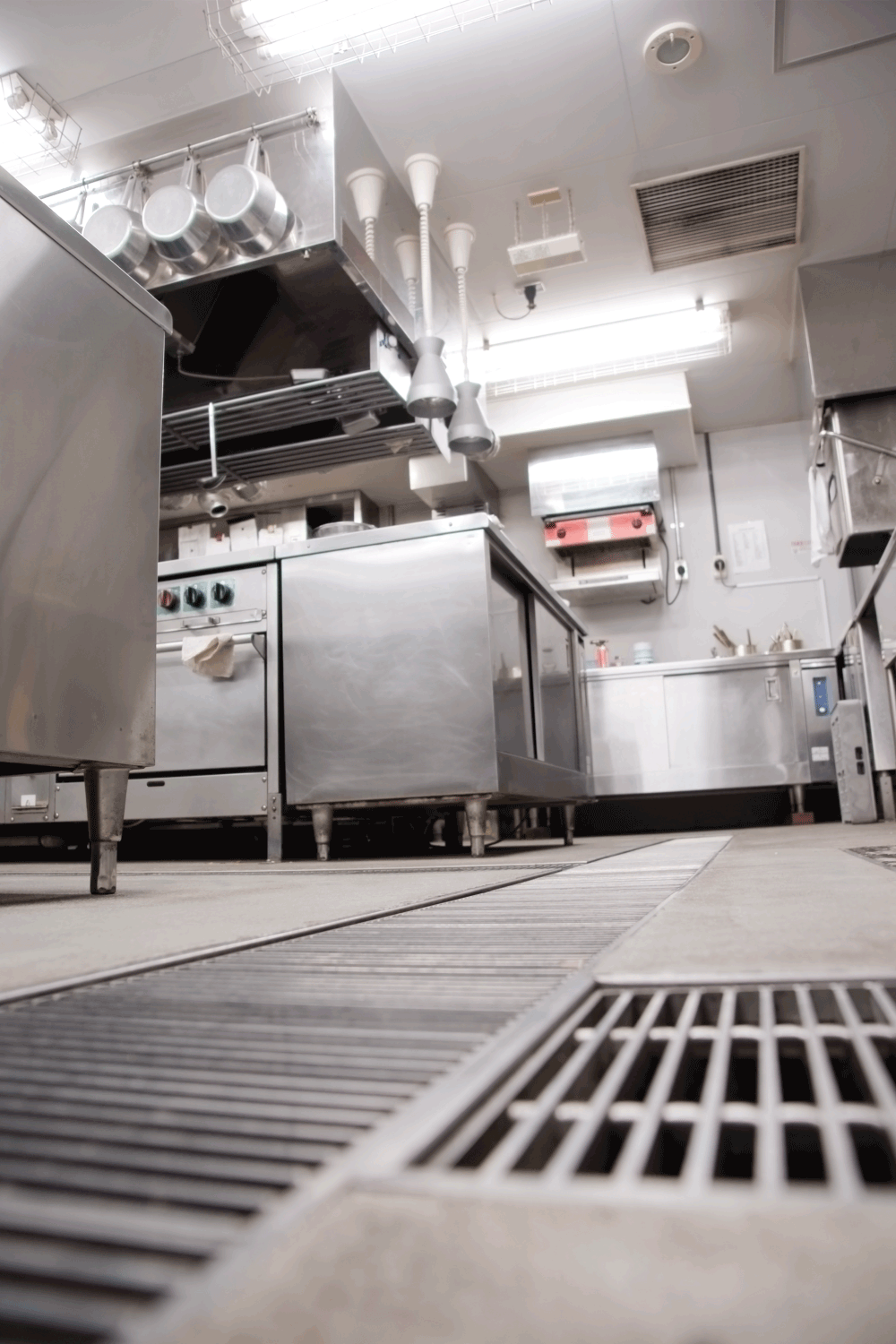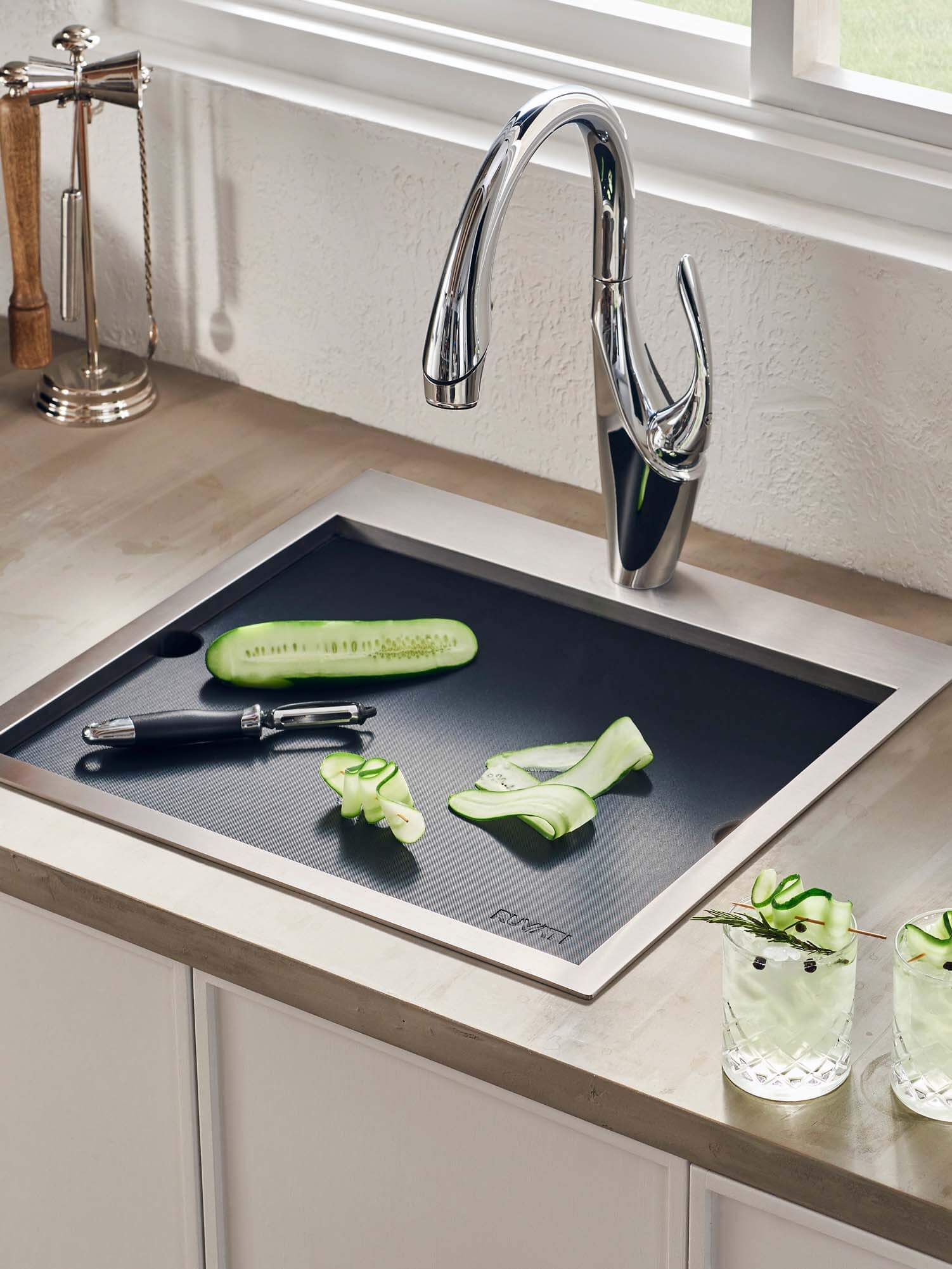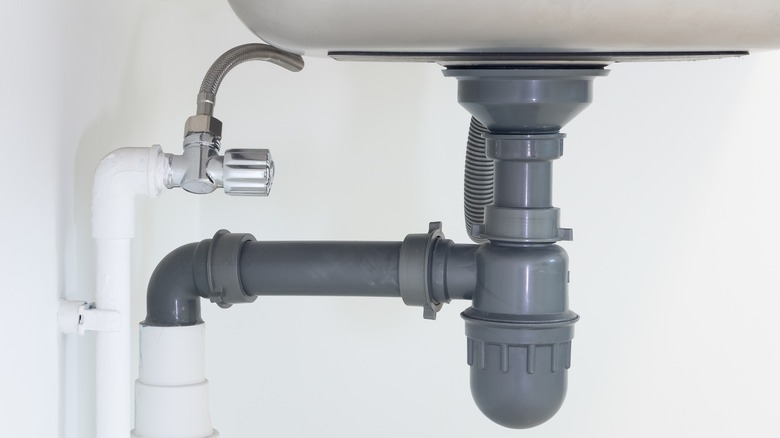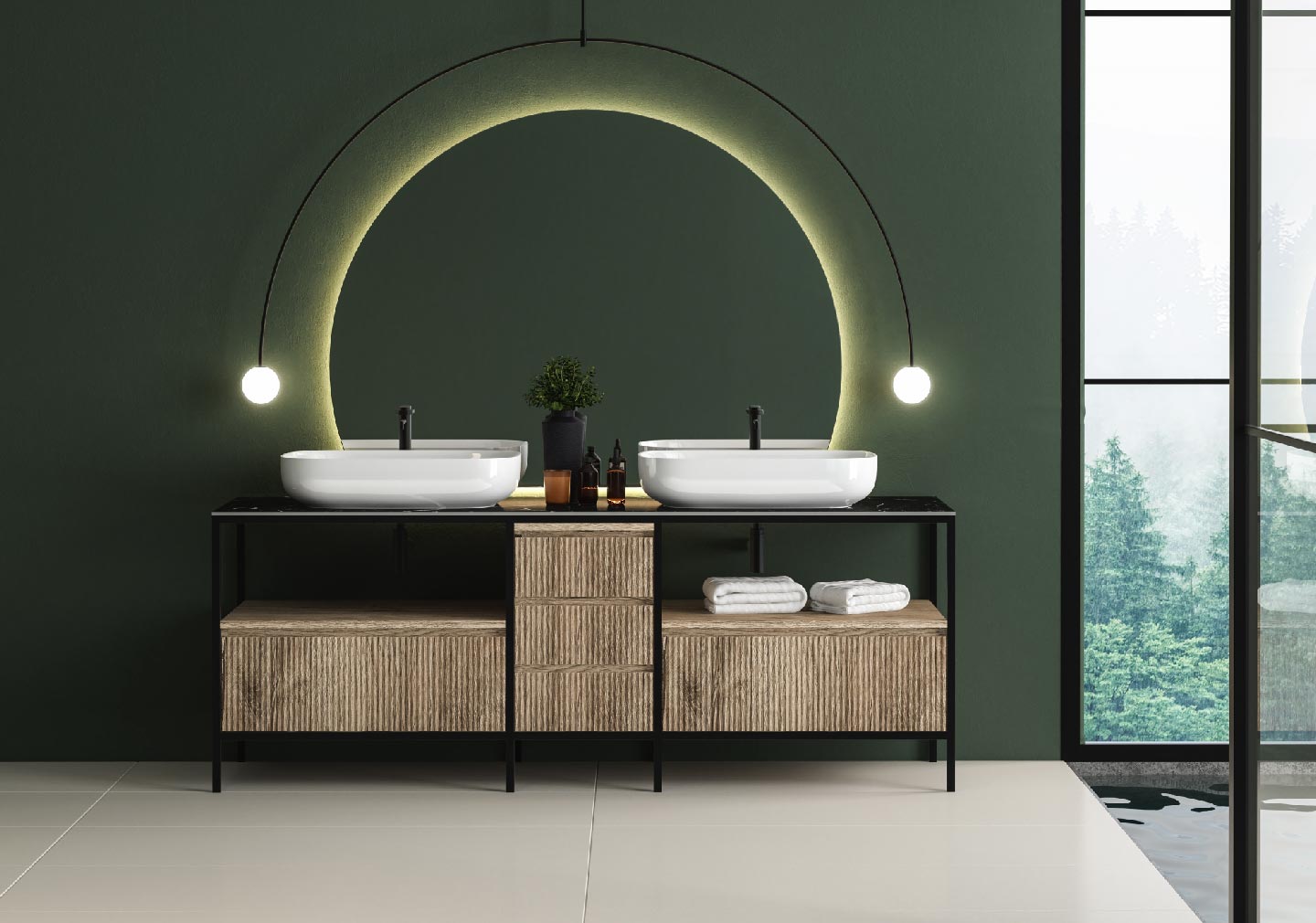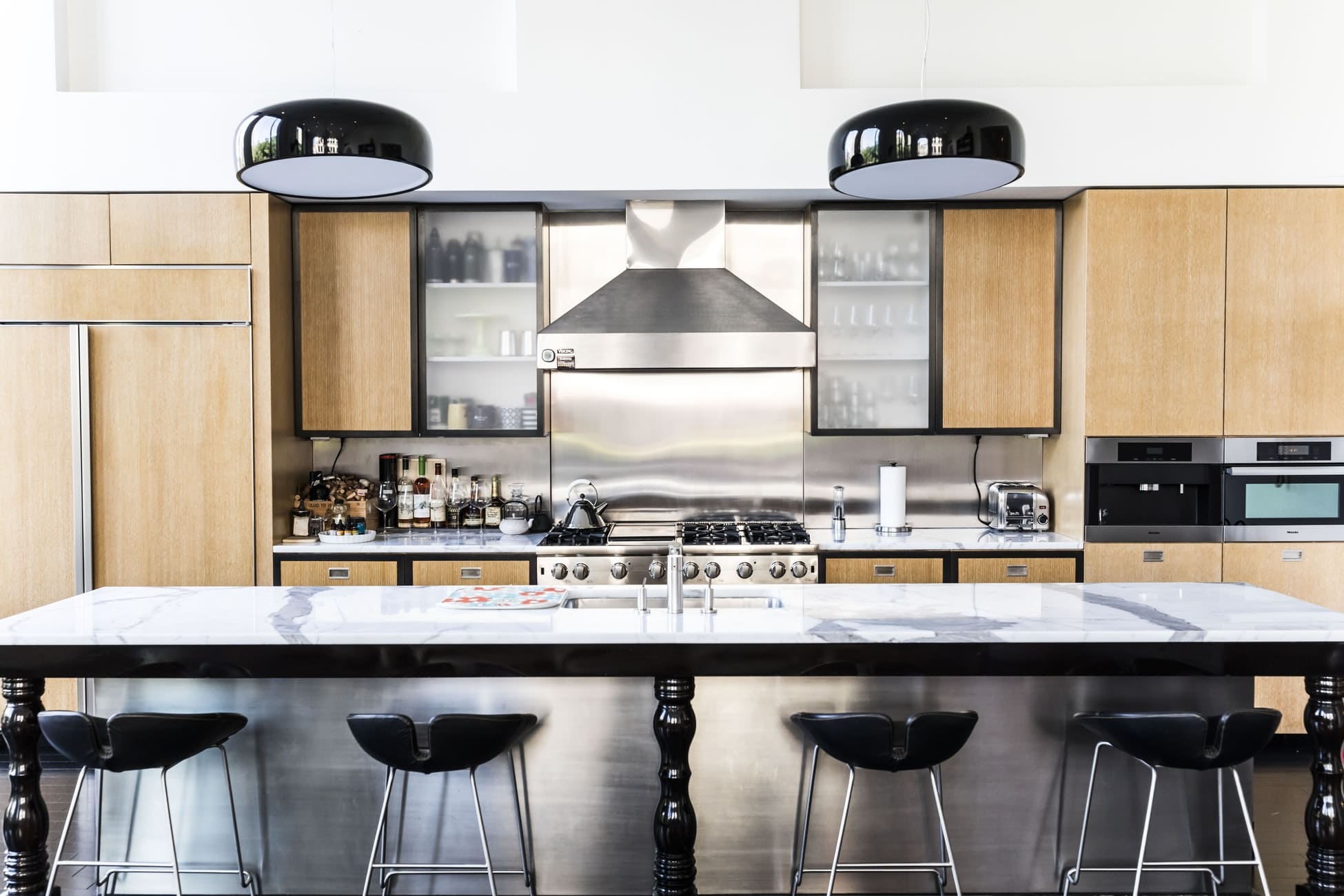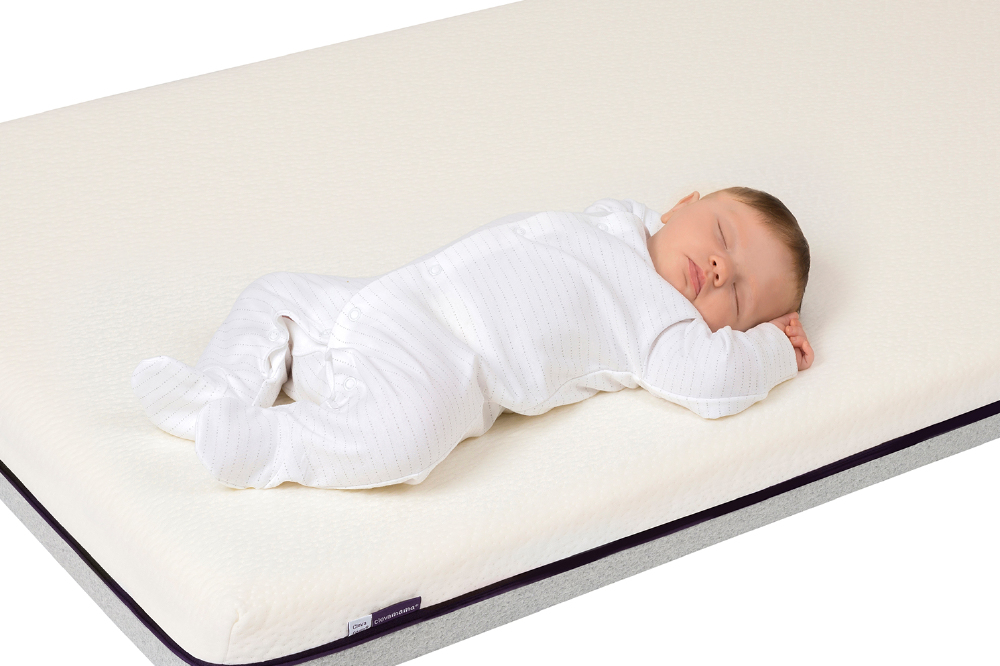Dealing with a clogged kitchen sink can be a major inconvenience. It can disrupt your daily routine and make it difficult to complete essential tasks like washing dishes or preparing food. Fortunately, there are simple steps you can take to unclog your kitchen sink drain and get things flowing smoothly again. Start by removing any visible debris, such as food scraps or hair, from the drain. Next, try using a plunger to create suction and dislodge the clog. If that doesn't work, you can try using a homemade solution of baking soda and vinegar to break down the blockage. Simply pour half a cup of baking soda down the drain, followed by half a cup of vinegar. Let it sit for a few minutes, then pour hot water down the drain to flush it out. If these DIY solutions don't work, it may be time to call in a professional plumber who can use specialized tools to clear the clog and prevent future blockages.1. How to Unclog a Kitchen Sink Drain
Understanding the causes of water blockage in your kitchen sink can help you prevent future clogs. One of the most common causes is food scraps and other debris getting stuck in the drain. This can happen when you don't use a sink strainer or when you put large amounts of food down the drain at once. Another common cause is grease and oil buildup. These substances can solidify and create a barrier in your pipes, preventing water from draining properly. To avoid this, make sure to properly dispose of grease and oil, rather than pouring them down the drain. Old or damaged pipes can also contribute to water blockage in your kitchen sink. Over time, pipes can rust, corrode, or become misaligned, making it difficult for water to flow freely. If you suspect this is the cause of your clog, it's best to consult a professional plumber for a thorough inspection and potential repairs.2. Causes of Water Blockage in Kitchen Sink
When facing a clogged kitchen sink, it's natural to want to try and fix the problem yourself before calling in a professional. There are several DIY solutions you can try to clear a blocked sink drain. In addition to using a plunger and a baking soda and vinegar mixture, you can also try using a drain snake or a plumbing auger. These tools are designed to reach deep into your pipes and dislodge any stubborn clogs. Another option is to use a chemical drain cleaner, though it's important to be cautious when using these products and follow the instructions carefully. Remember, if your DIY attempts are unsuccessful, it's best to seek the help of a professional plumber to avoid causing further damage to your pipes.3. DIY Solutions for Kitchen Sink Water Blockage
Knowing the signs of a clogged kitchen sink can help you address the issue before it becomes a major problem. One of the most obvious signs is slow draining water. If you notice that your sink is taking longer than usual to drain, it's a good indication that there's a blockage somewhere in your pipes. You may also notice a foul smell coming from your drain. This can be a sign of food buildup or other debris that's stuck in your pipes. Additionally, if you hear gurgling noises when using your sink, it could be a sign of a clog. This is caused by air trying to escape through the blockage. If you notice any of these signs, it's important to address the issue as soon as possible to prevent further damage to your plumbing system.4. Common Signs of a Clogged Kitchen Sink
As mentioned earlier, a mixture of baking soda and vinegar can be an effective solution for clearing a clogged kitchen sink. This natural remedy is safe to use and won't harm your pipes. To use this method, start by pouring half a cup of baking soda down the drain. Next, pour half a cup of vinegar down the drain and cover it with a cloth or drain plug. This will create a chemical reaction that will help break down the blockage. After a few minutes, pour hot water down the drain to flush out the debris. Repeat this process a few times if necessary, and your sink should be back to normal in no time.5. Using Baking Soda and Vinegar to Clear a Clogged Sink
If DIY solutions are not working, it's best to call in a professional plumber for help with your kitchen sink blockage. These experts have the knowledge, skills, and tools to effectively diagnose and resolve any clogging issues. A professional plumber can use specialized equipment, such as hydro-jetters, to remove stubborn blockages and clean out your pipes. They can also conduct a thorough inspection of your plumbing system to identify any underlying issues that may be causing the blockage. While it may be tempting to try and save money by fixing the issue yourself, hiring a professional can save you time, frustration, and potential damage to your pipes in the long run.6. Professional Plumbing Services for Kitchen Sink Blockage
The best way to deal with a clogged kitchen sink is to prevent it from happening in the first place. Here are some useful tips to help you avoid water blockage in your kitchen sink: - Use a sink strainer to catch any food scraps or debris before they go down the drain. - Avoid pouring grease, oil, or coffee grounds down the sink. - Run hot water down the drain after each use to help prevent buildup. - Regularly clean your sink and pipes to remove any buildup. By following these preventative measures, you can keep your kitchen sink running smoothly and avoid the inconvenience and expense of dealing with a clogged drain.7. Prevention Tips for Kitchen Sink Water Blockage
A plunger can be a handy tool for clearing a clogged kitchen sink. To use a plunger, make sure there is enough water in the sink to cover the rubber end of the plunger. Place the plunger over the drain and create a tight seal. Then, push and pull the plunger in a pumping motion to create suction and dislodge the clog. If the plunger doesn't work, you can try using a plunger specifically designed for sinks, which has a smaller rubber cup that can fit over the drain more easily.8. How to Use a Plunger to Clear a Clogged Sink
Chemical drain cleaners can be a quick and easy solution for clearing a clogged kitchen sink. These products contain powerful chemicals that can break down blockages and clear your pipes. However, it's important to use these products with caution. The chemicals can be harmful to your skin and eyes, and they can also damage older or weaker pipes. It's best to follow the instructions carefully and use protective gear when handling these products.9. Chemical Drain Cleaners for Kitchen Sink Blockage
Regular maintenance is key to keeping your kitchen sink drainage running smoothly and preventing water blockage. This includes simple tasks like regularly cleaning your sink and using a sink strainer to catch debris. It's also important to have your plumbing system inspected by a professional plumber on a regular basis. They can identify any potential issues and make necessary repairs before they turn into major problems. By taking good care of your kitchen sink drainage, you can save yourself time, money, and frustration in the long run.10. Importance of Regular Maintenance for Kitchen Sink Drainage
The Importance of Proper Drainage in Kitchen Sink Design
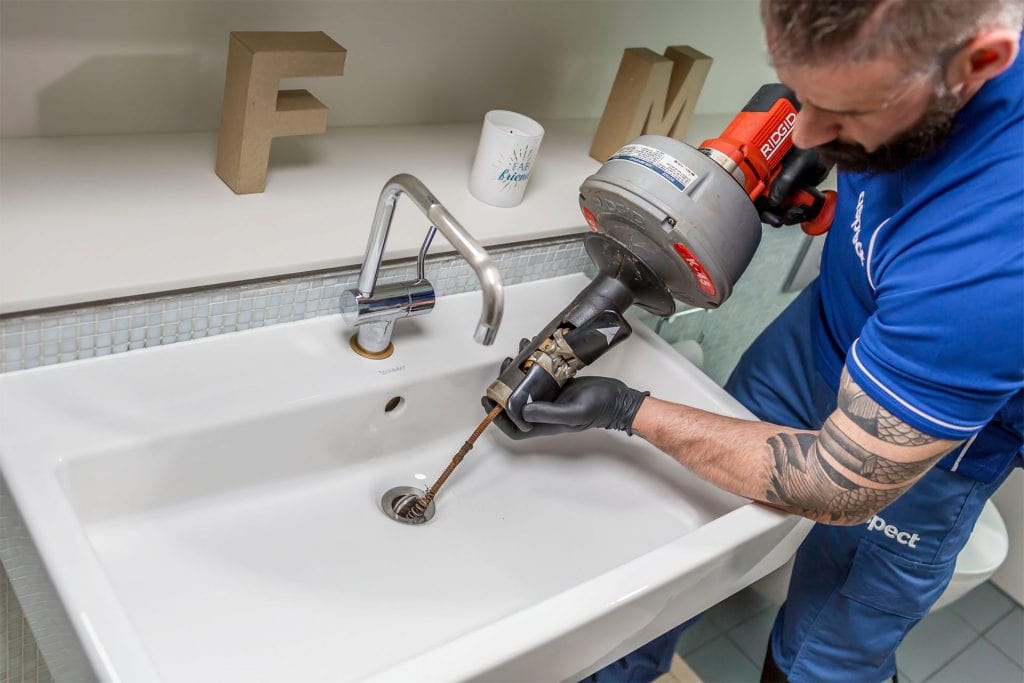
Don't Let Water Blockage Ruin Your Kitchen Sink
 Kitchen sinks are an essential part of any home. They serve as a central hub for cleaning and food preparation, making them an integral part of our daily routines. However, a common problem that many homeowners face is water blockage in their kitchen sinks. This issue not only causes inconvenience but can also lead to costly repairs if left unaddressed. In this article, we will discuss the importance of proper drainage in kitchen sink design and provide tips on how to prevent water blockage.
What Causes Water Blockage in Kitchen Sinks?
Before we delve into the importance of proper drainage, it is essential to understand the root cause of water blockage in kitchen sinks. The most common culprit is food debris and grease buildup. Over time, these substances can accumulate in the pipes and create a blockage, preventing water from flowing freely. Additionally, outdated or poorly designed plumbing systems can also contribute to water blockage.
The Consequences of Water Blockage
Water blockage in kitchen sinks can lead to a host of problems. The first and most obvious consequence is the inability to use the sink properly. This can be frustrating, especially when you are in the middle of preparing a meal or cleaning up after one. Moreover, standing water in the sink can also be a breeding ground for bacteria, leading to potential health hazards. Additionally, if the blockage is severe, it can cause leaks and even burst pipes, resulting in costly repairs and water damage to your home.
The Importance of Proper Drainage in Kitchen Sink Design
Proper drainage is a crucial aspect of kitchen sink design that often goes overlooked. A well-designed sink should have enough slope to allow water to flow freely and prevent any buildup. Additionally, installing a garbage disposal can help break down food particles, preventing them from clogging the pipes. Regular maintenance and cleaning of the sink and pipes can also help keep the drainage system in good working condition.
Preventing Water Blockage in Your Kitchen Sink
Prevention is always better than cure, especially when it comes to water blockage. Here are some tips to help you prevent this issue from occurring in your kitchen sink:
- Scrape off excess food from plates before washing them in the sink.
- Avoid pouring grease or oil down the drain.
- Install a sink strainer to catch food debris.
- Run hot water down the drain after each use to help melt any grease buildup.
- Use a mixture of baking soda and vinegar to clean the pipes regularly.
In conclusion, proper drainage is a crucial aspect of kitchen sink design that should not be overlooked. By understanding the causes and consequences of water blockage and implementing preventative measures, you can ensure a healthy and functional kitchen sink for years to come.
Kitchen sinks are an essential part of any home. They serve as a central hub for cleaning and food preparation, making them an integral part of our daily routines. However, a common problem that many homeowners face is water blockage in their kitchen sinks. This issue not only causes inconvenience but can also lead to costly repairs if left unaddressed. In this article, we will discuss the importance of proper drainage in kitchen sink design and provide tips on how to prevent water blockage.
What Causes Water Blockage in Kitchen Sinks?
Before we delve into the importance of proper drainage, it is essential to understand the root cause of water blockage in kitchen sinks. The most common culprit is food debris and grease buildup. Over time, these substances can accumulate in the pipes and create a blockage, preventing water from flowing freely. Additionally, outdated or poorly designed plumbing systems can also contribute to water blockage.
The Consequences of Water Blockage
Water blockage in kitchen sinks can lead to a host of problems. The first and most obvious consequence is the inability to use the sink properly. This can be frustrating, especially when you are in the middle of preparing a meal or cleaning up after one. Moreover, standing water in the sink can also be a breeding ground for bacteria, leading to potential health hazards. Additionally, if the blockage is severe, it can cause leaks and even burst pipes, resulting in costly repairs and water damage to your home.
The Importance of Proper Drainage in Kitchen Sink Design
Proper drainage is a crucial aspect of kitchen sink design that often goes overlooked. A well-designed sink should have enough slope to allow water to flow freely and prevent any buildup. Additionally, installing a garbage disposal can help break down food particles, preventing them from clogging the pipes. Regular maintenance and cleaning of the sink and pipes can also help keep the drainage system in good working condition.
Preventing Water Blockage in Your Kitchen Sink
Prevention is always better than cure, especially when it comes to water blockage. Here are some tips to help you prevent this issue from occurring in your kitchen sink:
- Scrape off excess food from plates before washing them in the sink.
- Avoid pouring grease or oil down the drain.
- Install a sink strainer to catch food debris.
- Run hot water down the drain after each use to help melt any grease buildup.
- Use a mixture of baking soda and vinegar to clean the pipes regularly.
In conclusion, proper drainage is a crucial aspect of kitchen sink design that should not be overlooked. By understanding the causes and consequences of water blockage and implementing preventative measures, you can ensure a healthy and functional kitchen sink for years to come.
To avoid the inconvenience and costs of water blockage in your kitchen sink, it is essential to invest in a well-designed and maintained drainage system. By following the tips mentioned above, you can prevent this issue from occurring and keep your kitchen sink in excellent working condition.

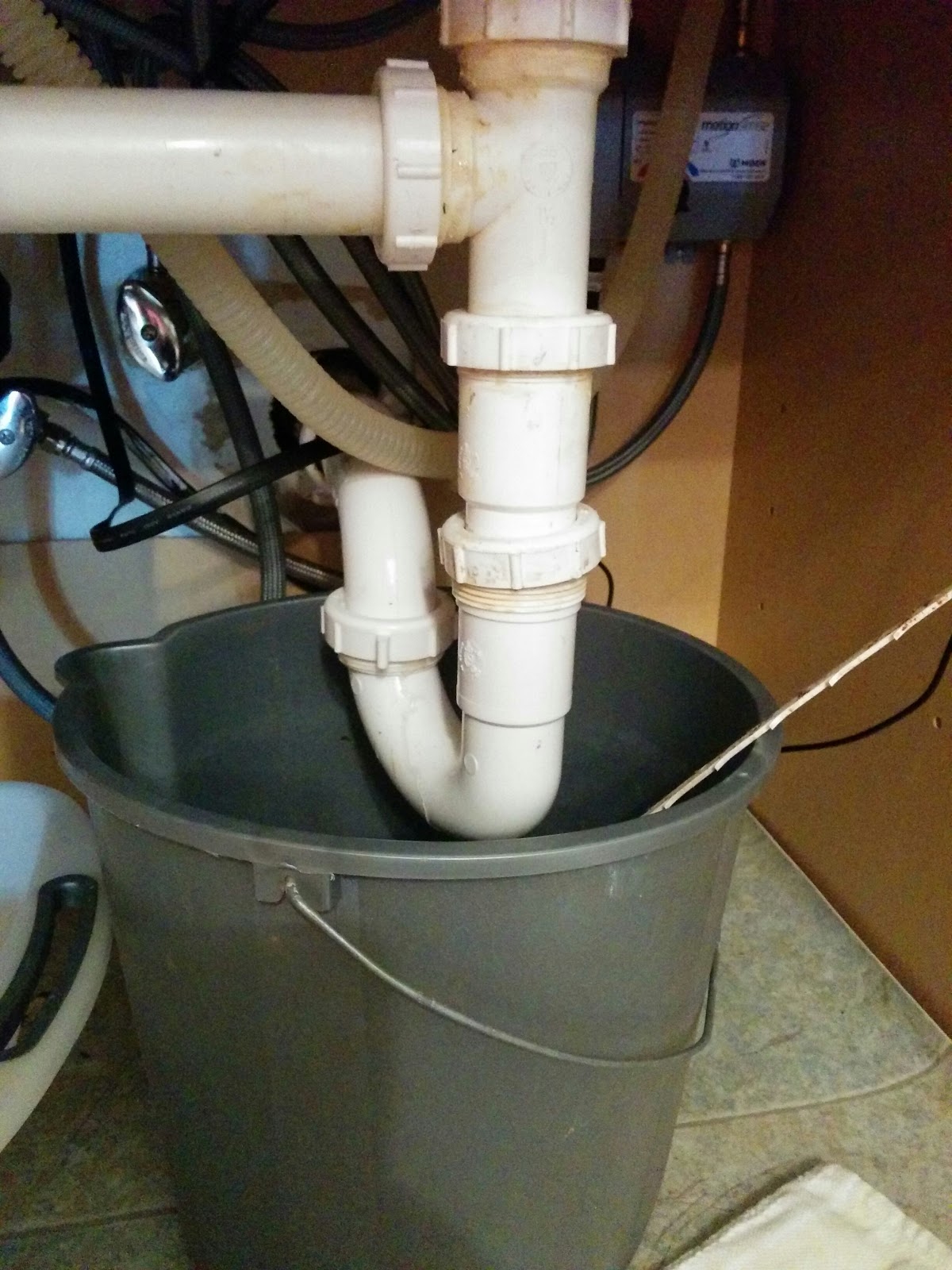
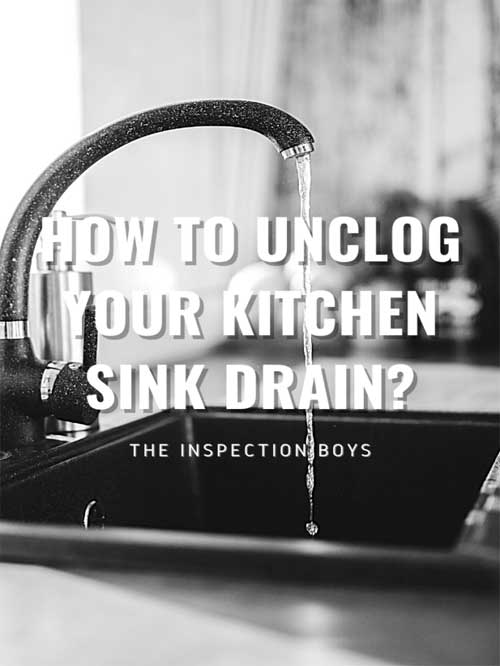



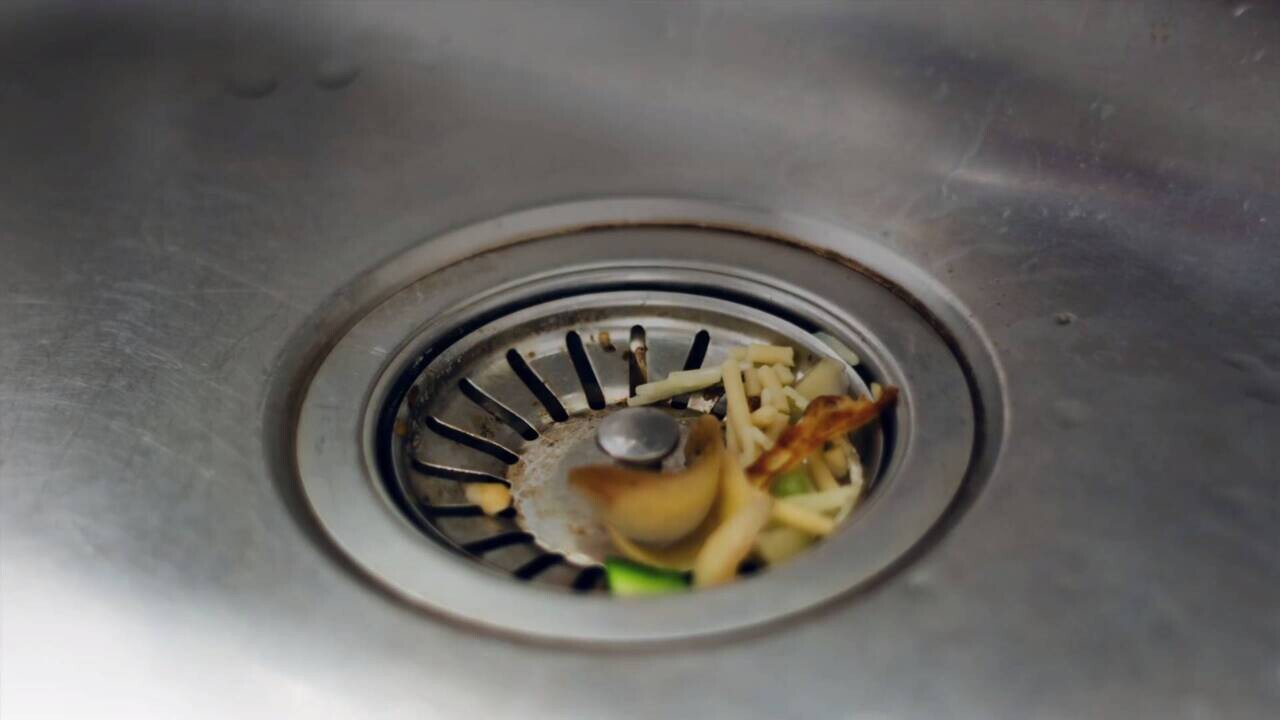

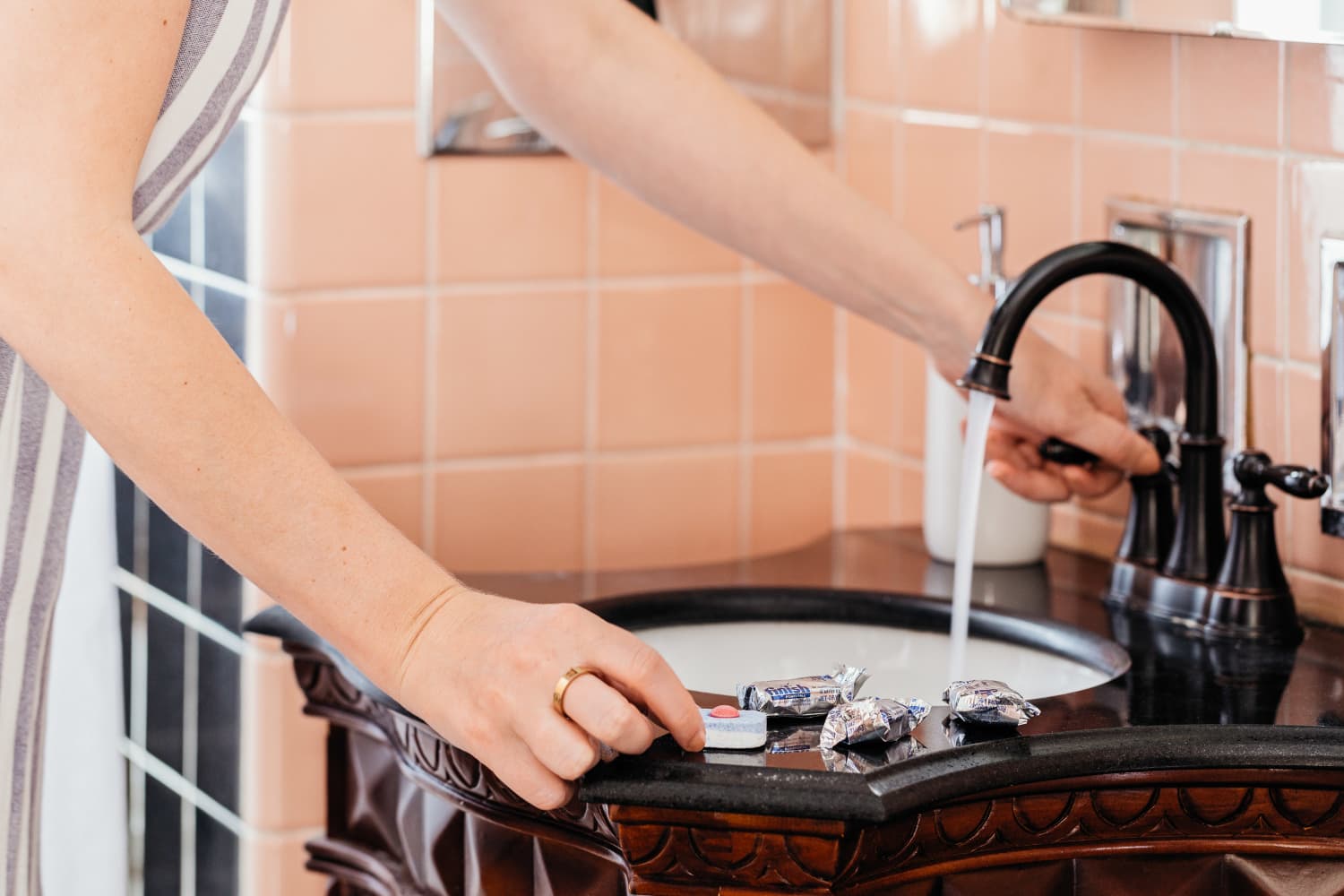
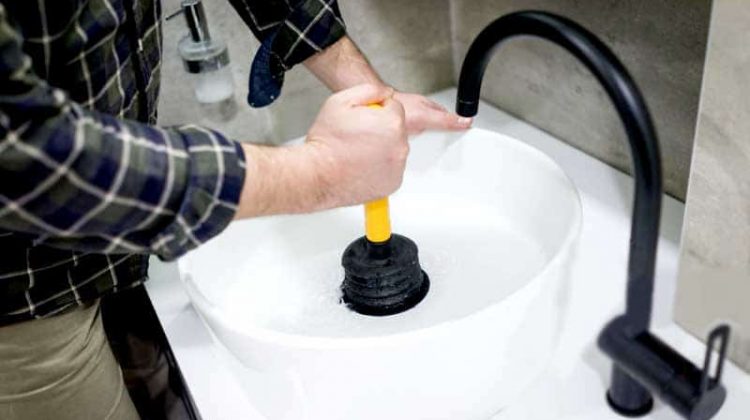

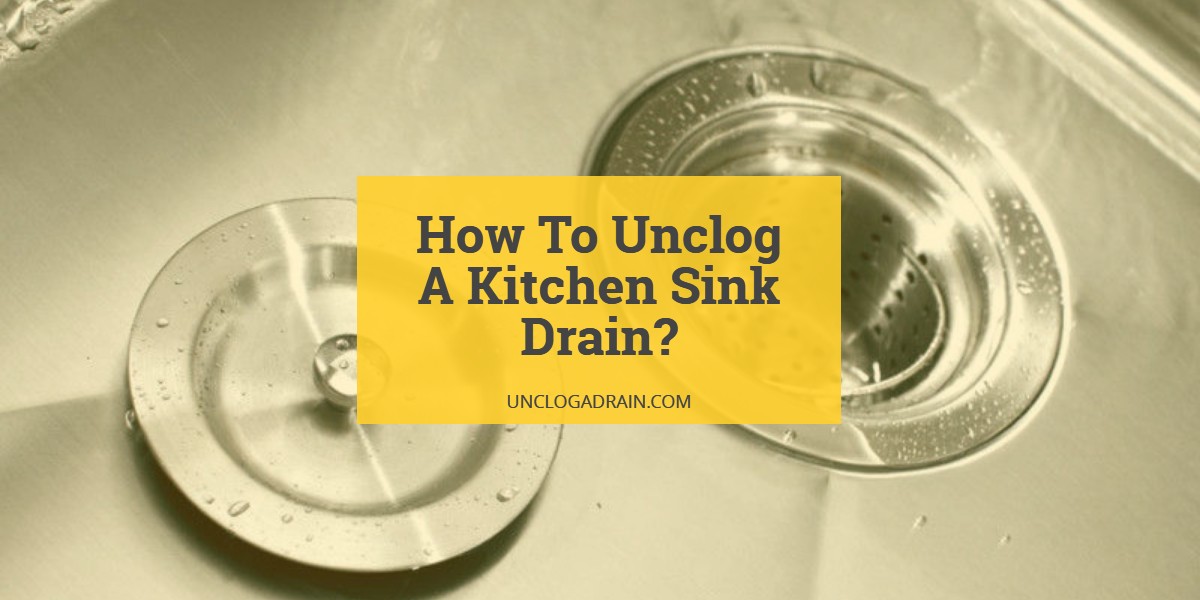




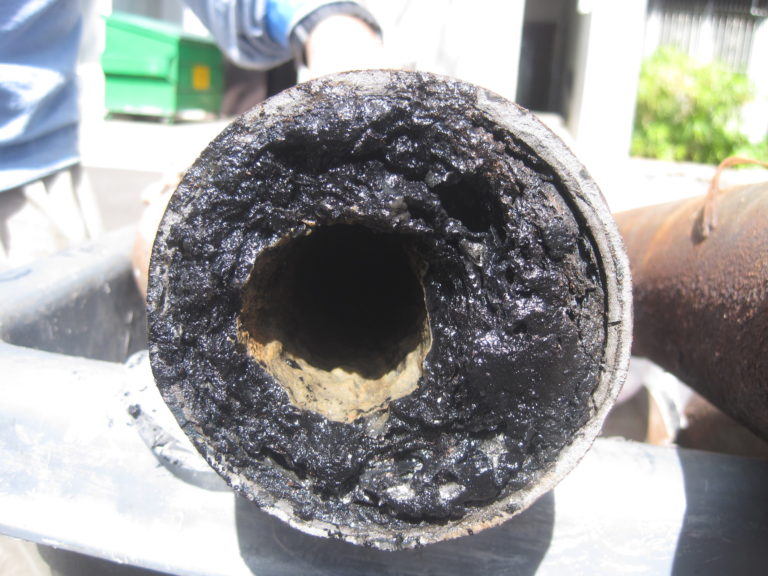
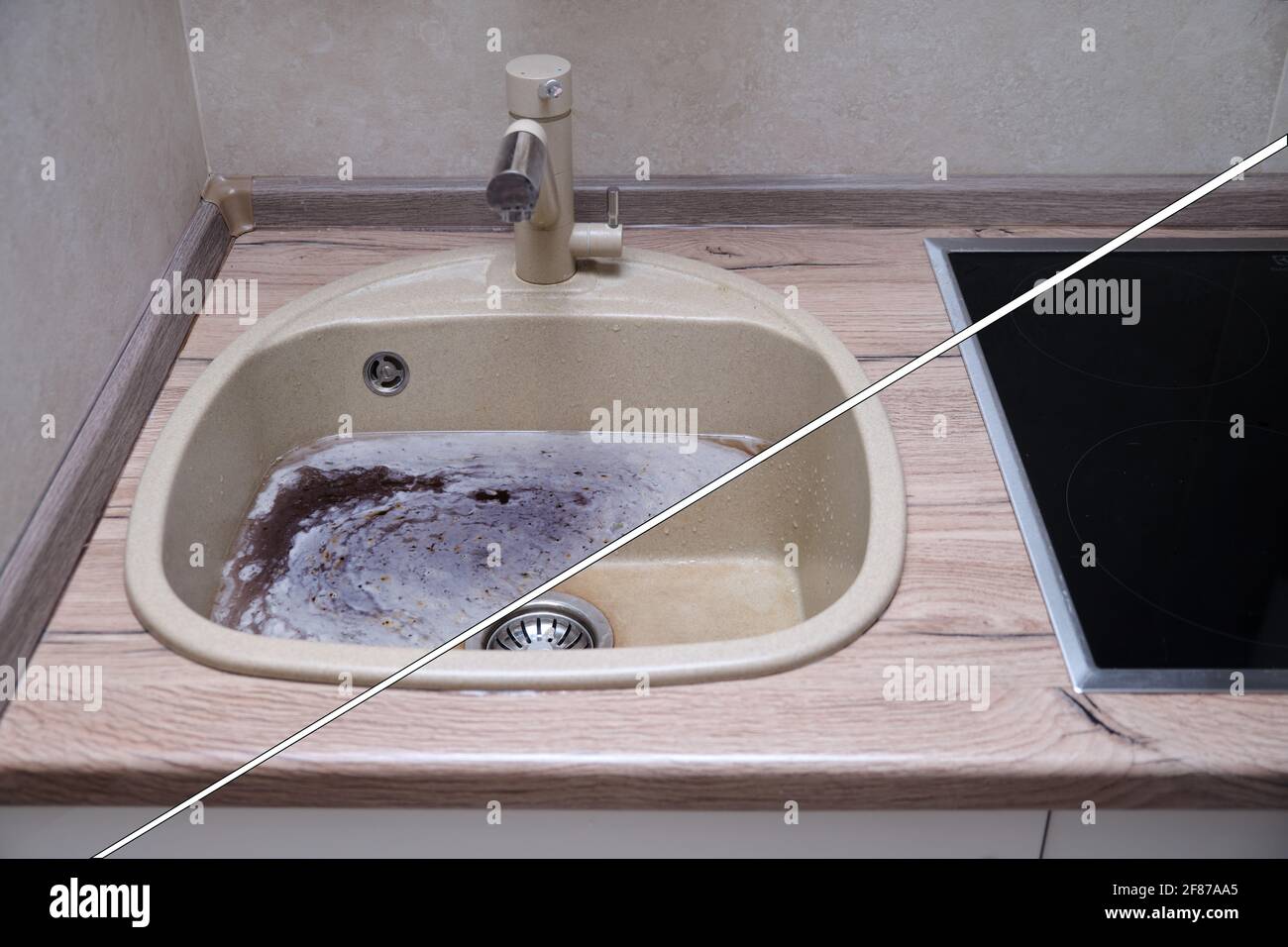


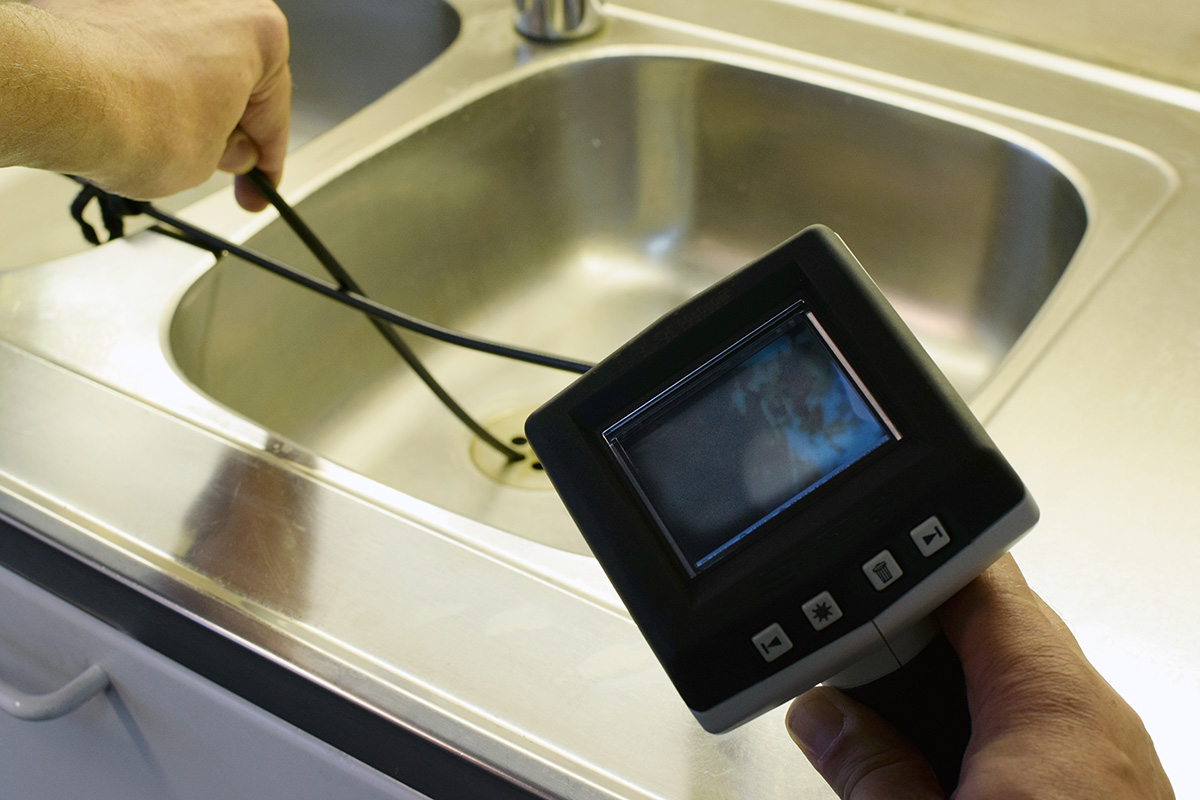
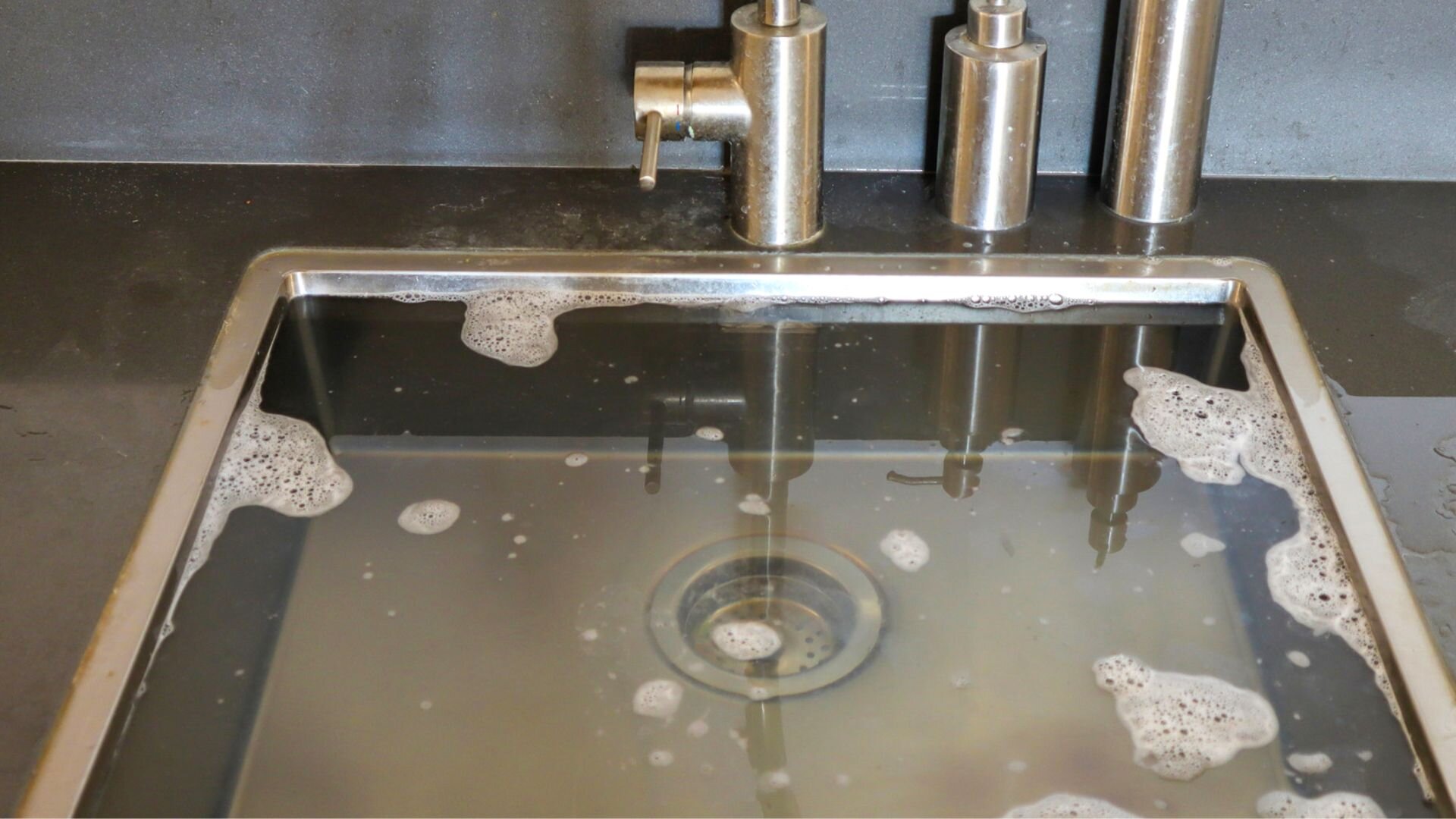

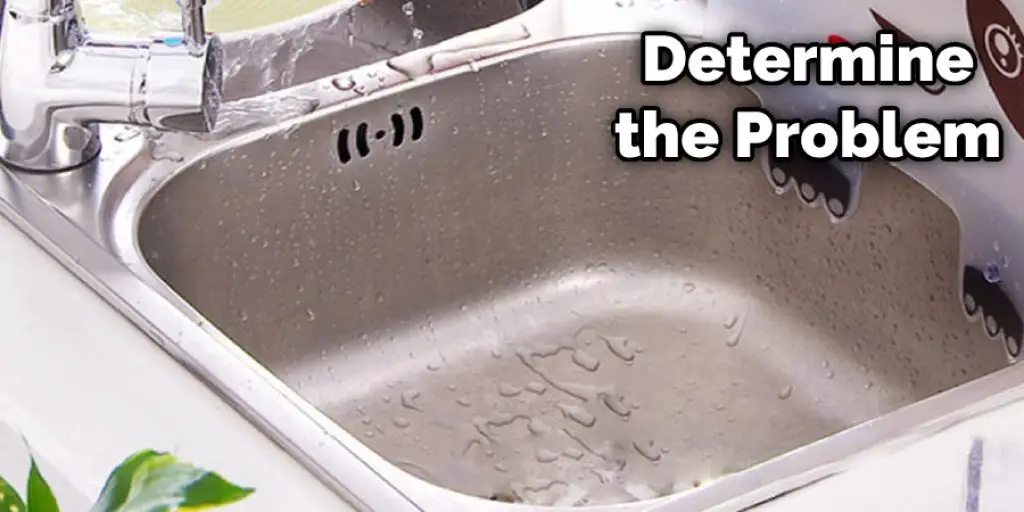


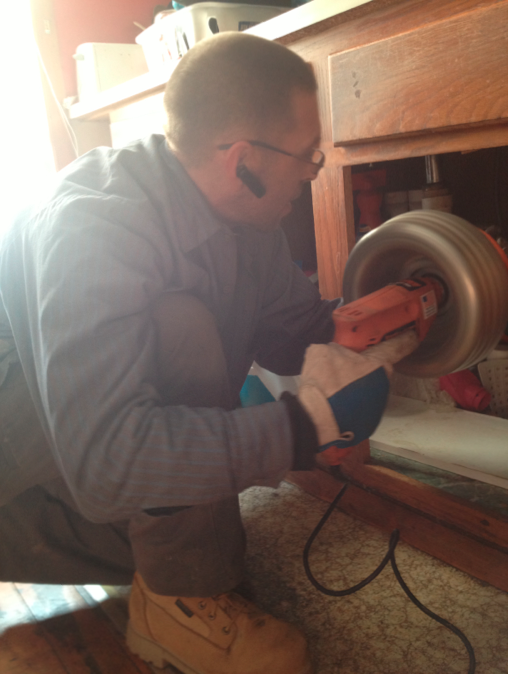
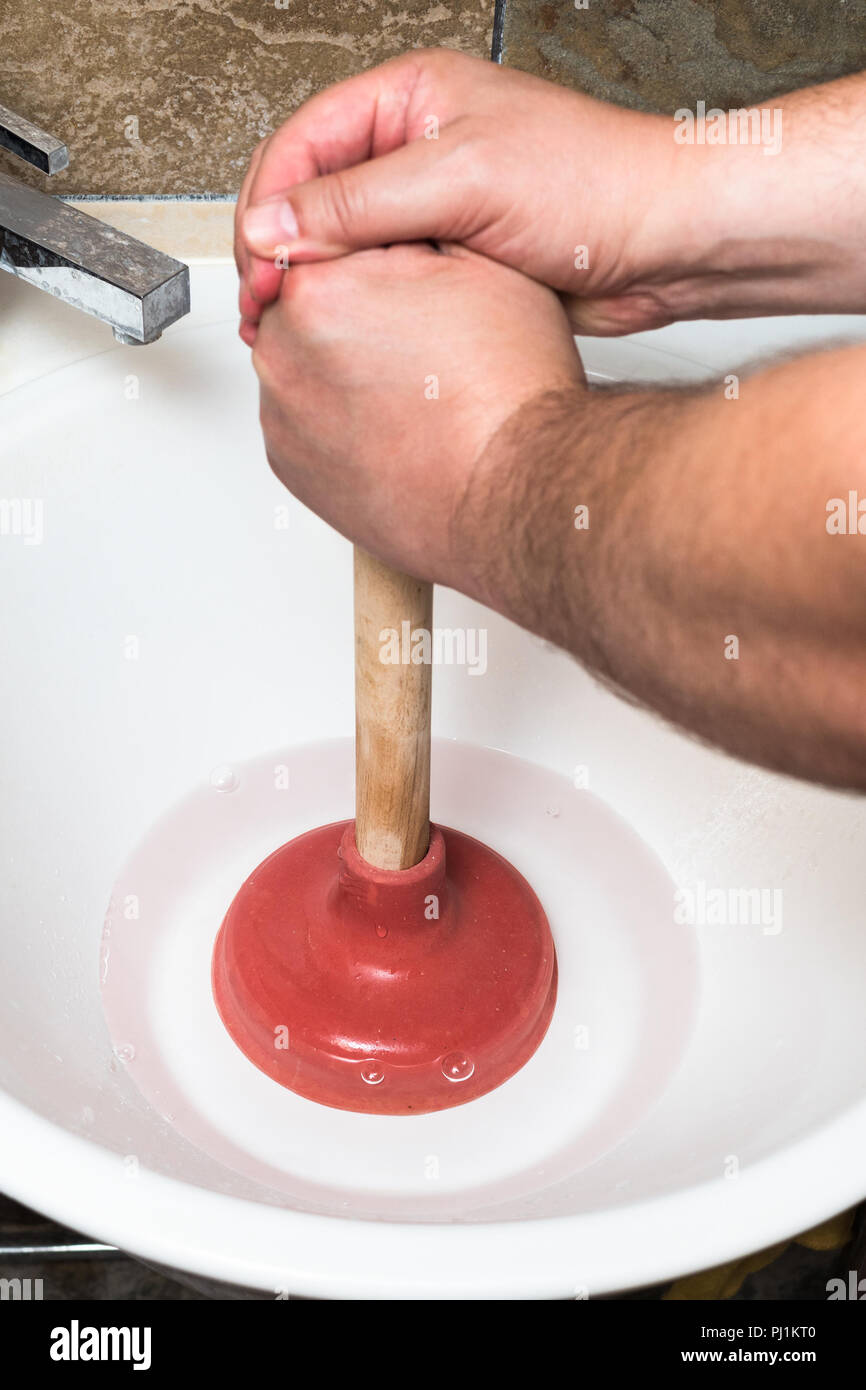







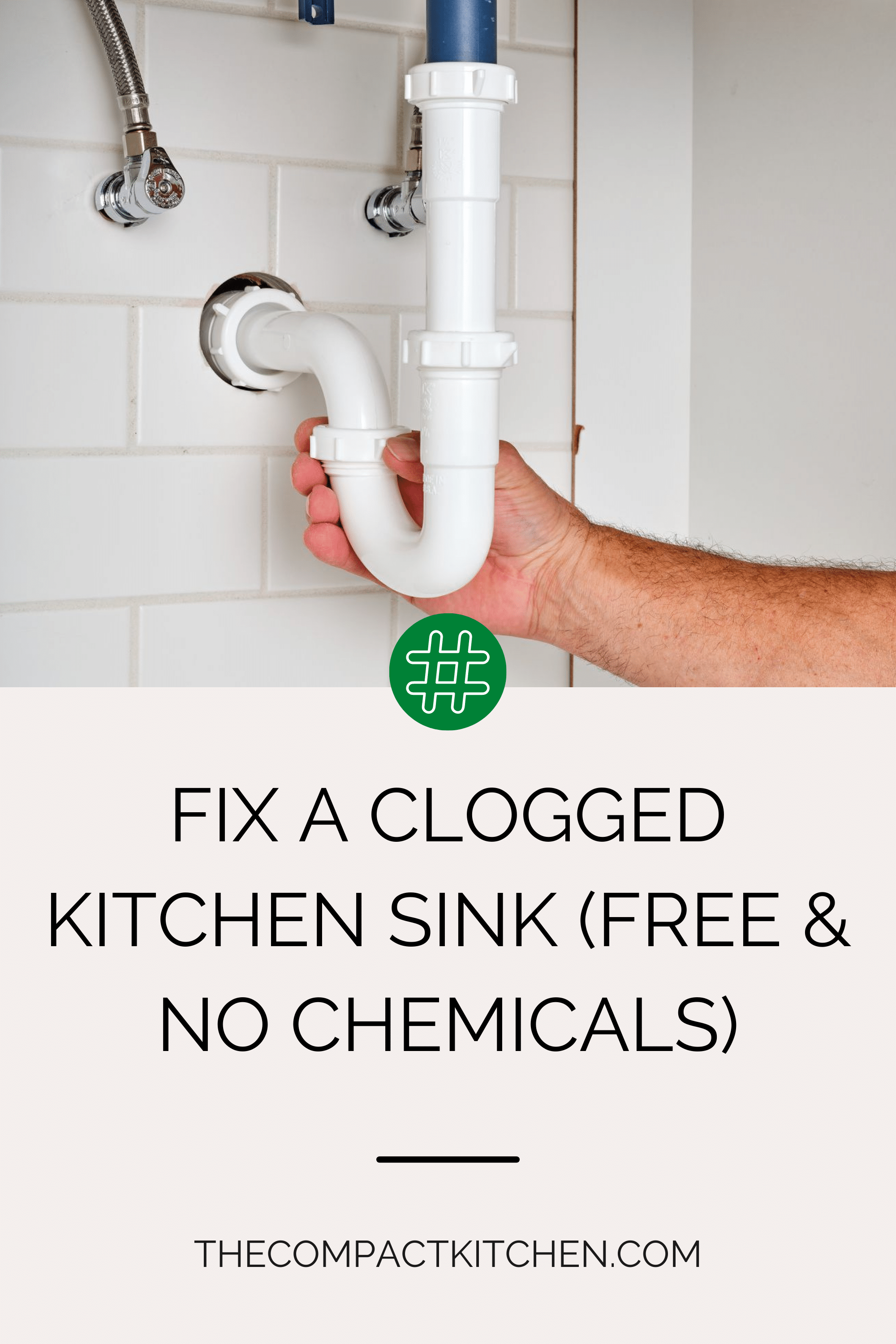
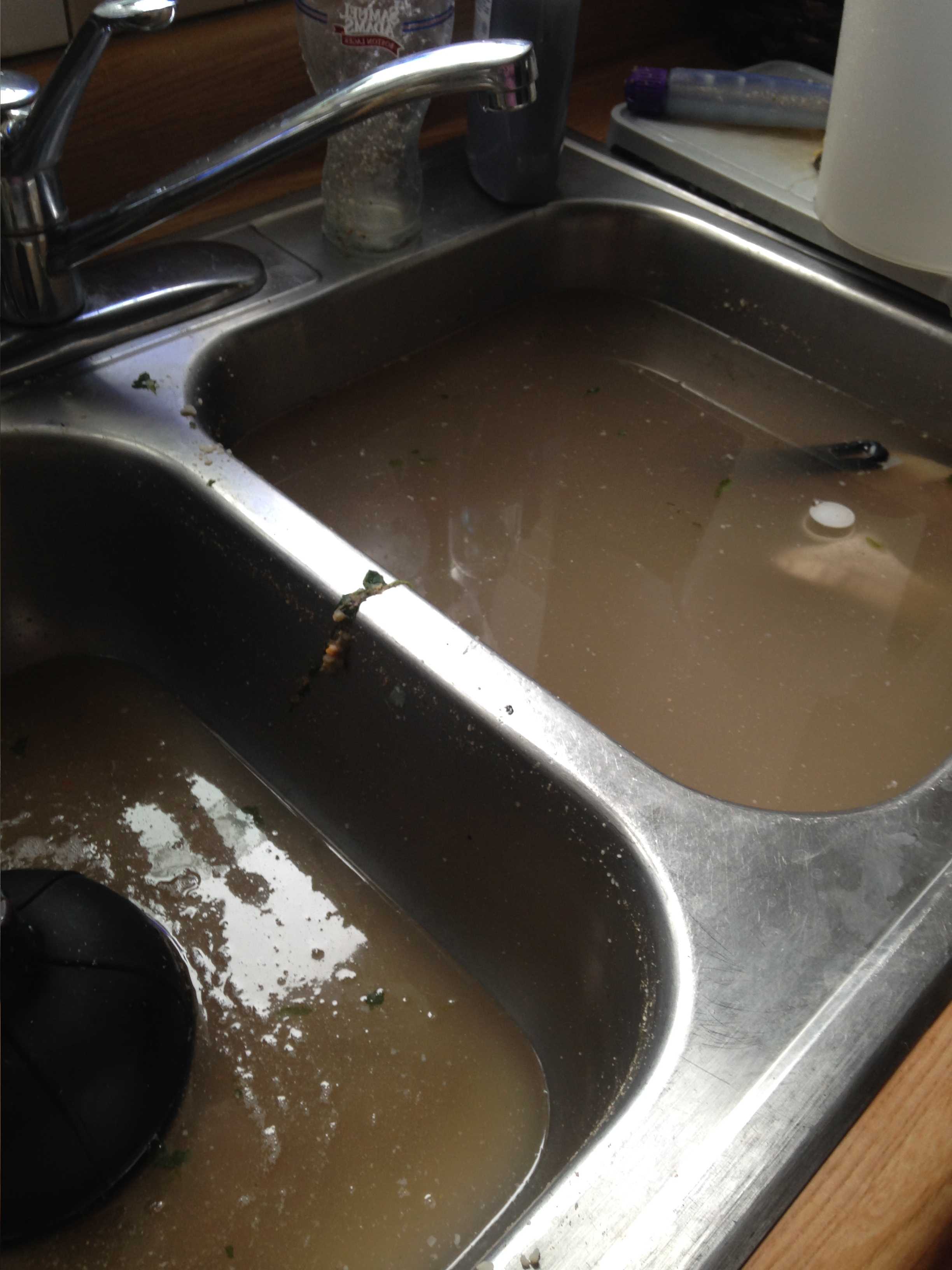


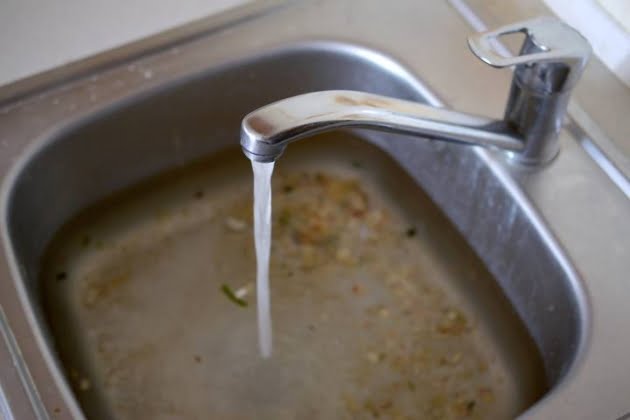






:max_bytes(150000):strip_icc()/freshen-and-unclog-drain-with-baking-soda-1900466-22-bbf940b70afa4d5abef0c54da23b1d3f.jpg)


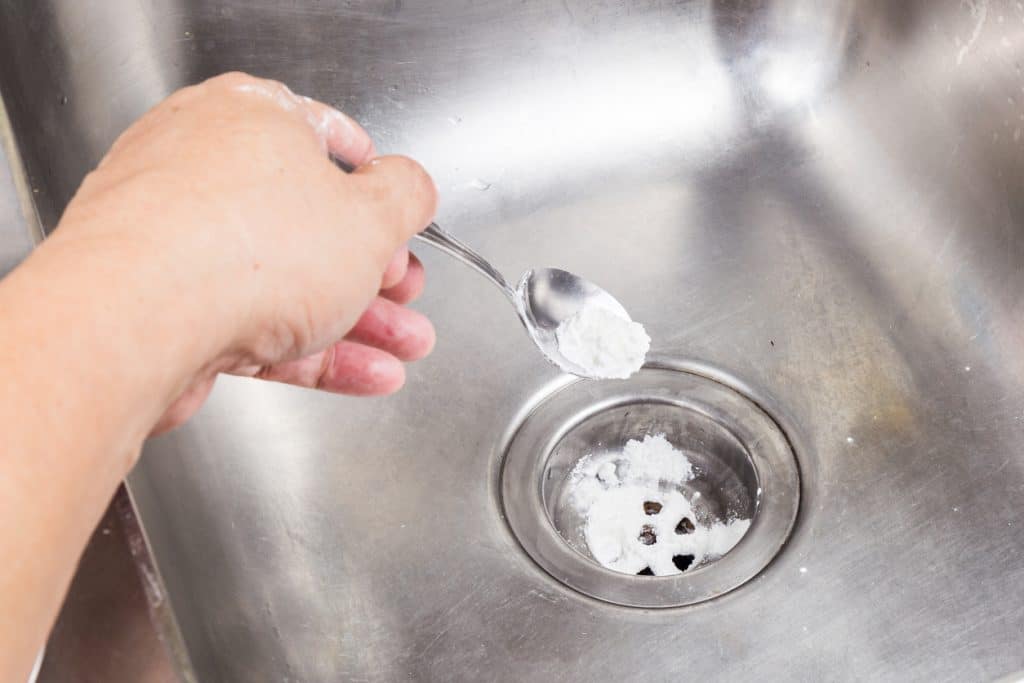


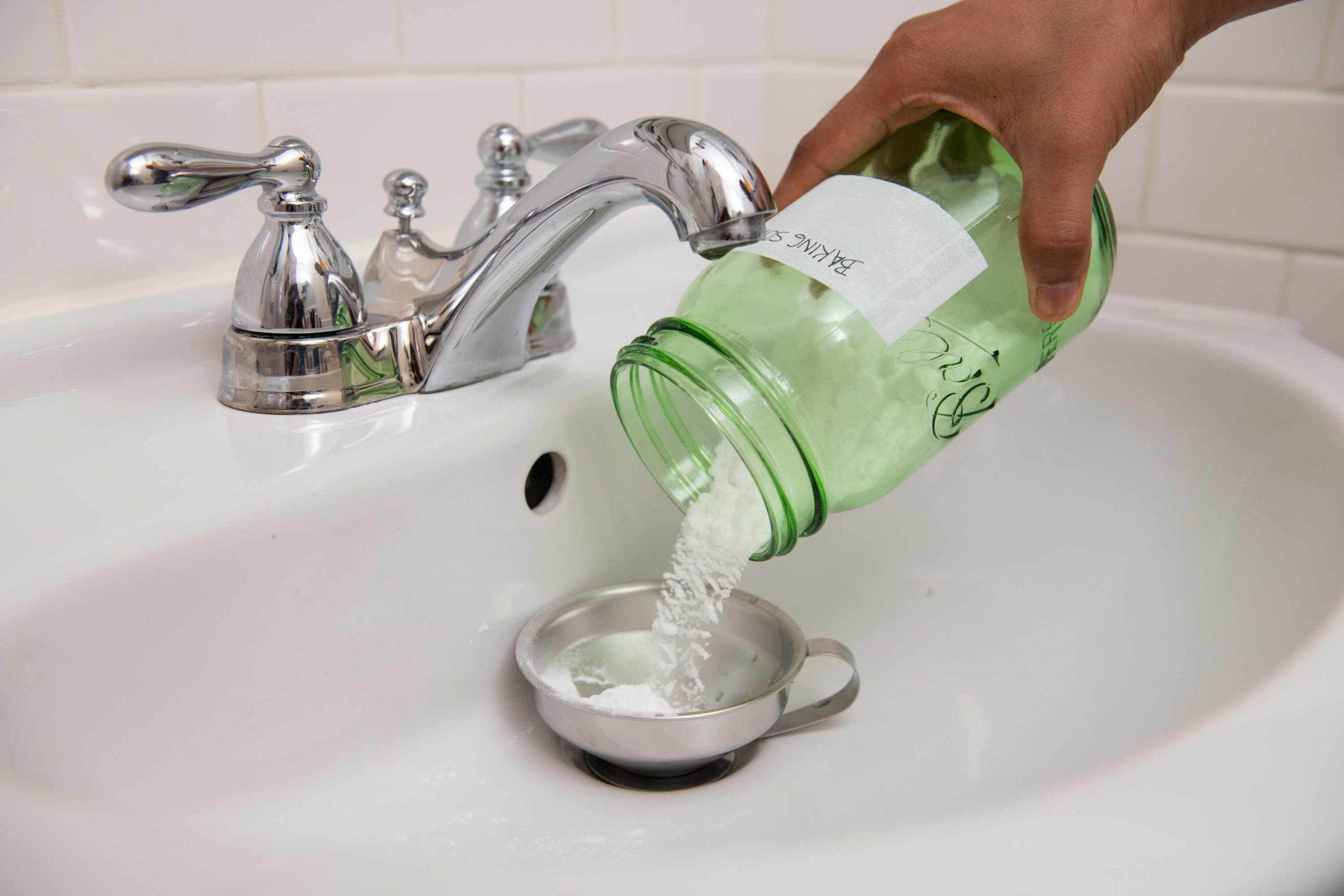
:max_bytes(150000):strip_icc()/freshen-and-unclog-drain-with-baking-soda-1900466-18-1a5b5da01939471ca8f8823865bd1ce8.jpg)





/how-to-install-a-sink-drain-2718789-hero-24e898006ed94c9593a2a268b57989a3.jpg)
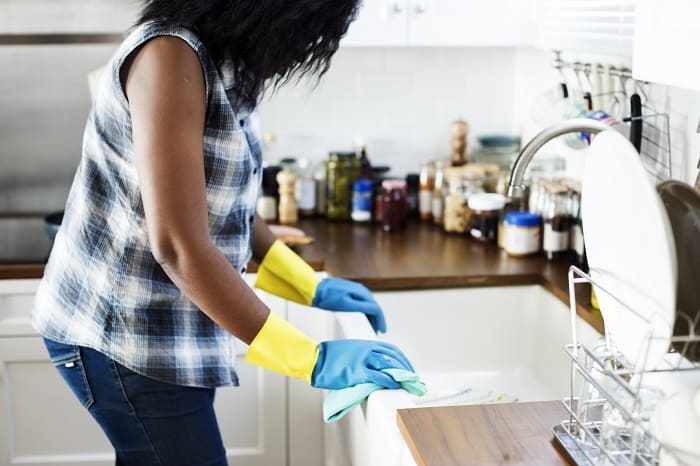

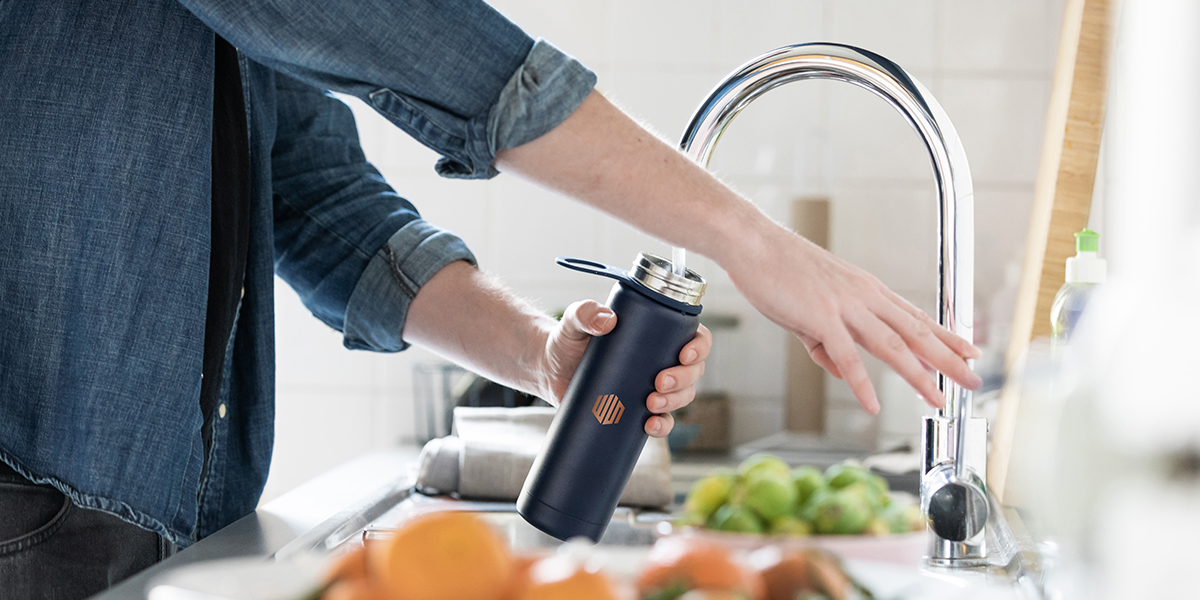



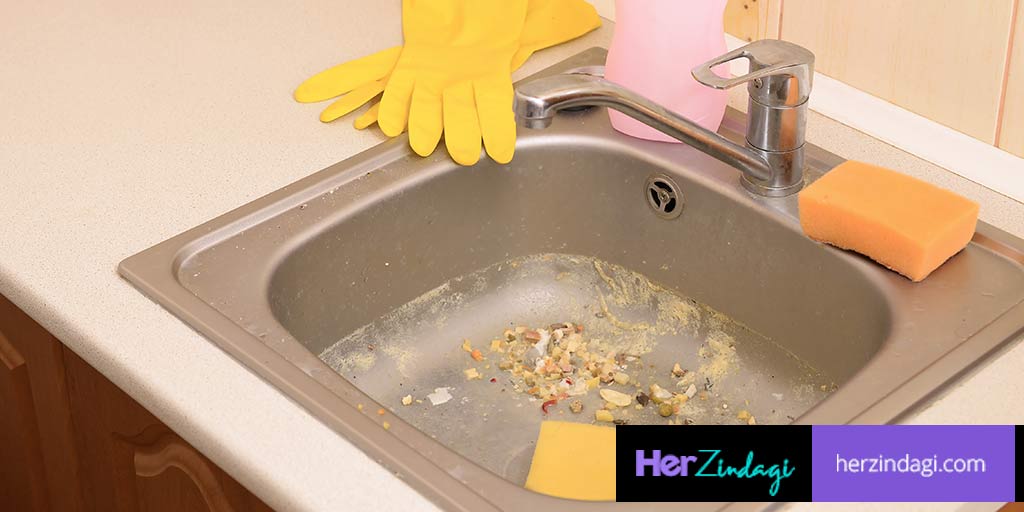










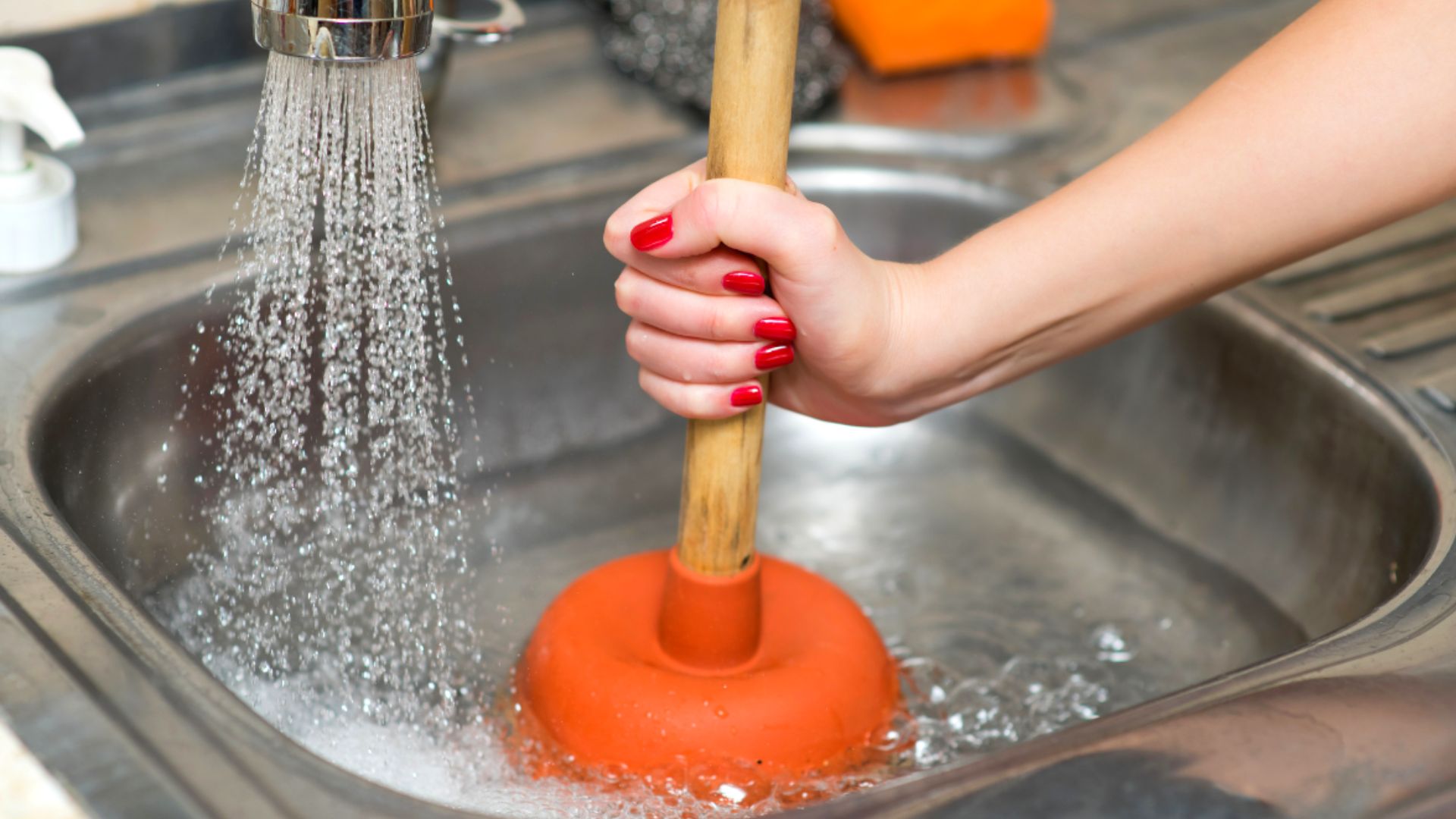

:max_bytes(150000):strip_icc()/toilette-plunger--92314164-873564a34a3441058f00a8d6fc1f0441.jpg)
